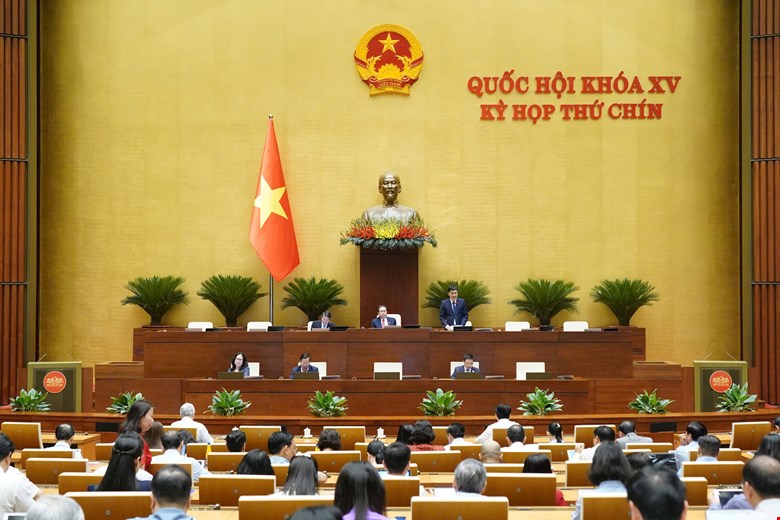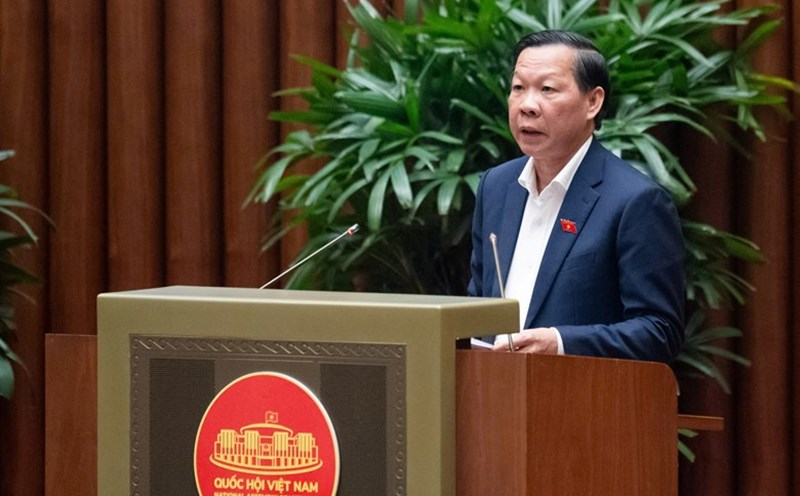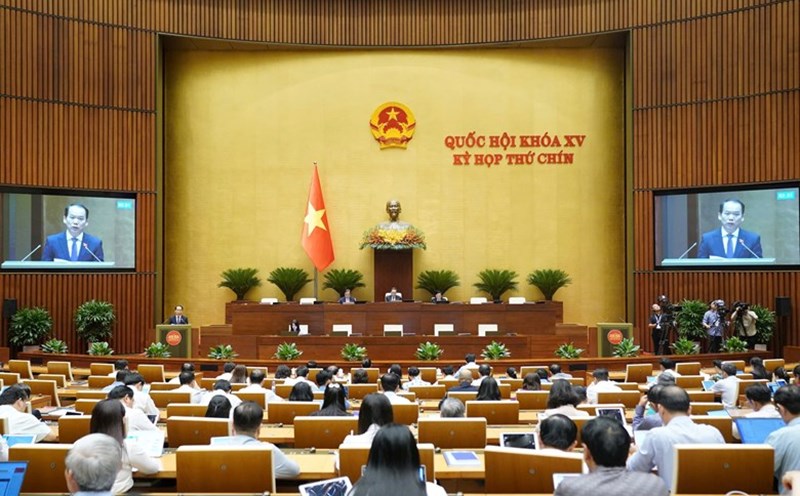On the morning of May 9, the National Assembly discussed in the hall a number of contents with different opinions of the draft Law on Special Consumption Tax (amended).
At the end of the discussion session, Minister of Finance Nguyen Van Thang explained and clarified a number of issues raised by National Assembly deputies.
According to Minister Nguyen Van Thang, for sugary soft drinks, the drafting agency and the reviewing agency have accepted the tax extension direction according to the application period according to the ratio of 8% in 2027 and 10% in 2028. The drafting agency will review to see which items will be applied from January 1, 2026 and which items will be postponed to 2027, avoiding shock for businesses.
According to the Minister, according to national standards, soft drinks are products prepared for drinking to reduce thirst, processed from water and containing sugar, additives...
According to this concept, waters not subject to special consumption tax include milk and dairy products, liquid foods for nutritional purposes, bottled mineral water, vegetable and fruit juice, coconut water, etc.
Regarding taxing air conditioners, the Minister said that there are currently a few countries that tax to save energy, related to refrigerants related to environmental pollution. This item has been previously taxed.
This time, the draft law stipulates that air conditioners with a capacity of over 18,000 BTU to 90,000 BTU are subject to special consumption tax. At today's discussion session, many delegates proposed to increase capacity. Therefore, the drafting agency will receive and increase this capacity to over 24,000 BTU to under 90,000 BTU to be subject to tax.
The Minister also cited the Prime Minister's regulation in 2024 requiring that by 2045, no production, no import of household air conditioners, and air conditioners in clusters using heating substances affecting the ozone layer will be limited.

Regarding the tax on gasoline, the Minister said that the special consumption tax on gasoline has been implemented since 1998.
According to the draft law, this item continues to be on the list of items subject to special consumption tax from 7-10%.
The Minister stated that the Prime Minister committed at the COP 26 Conference to the goal of reducing emissions to zero by 2050. The Minister of Finance emphasized that this is a challenging commitment to Vietnam. Currently, European countries are implementing very drastically many measures to reduce emissions.
The Minister of Finance affirmed that in Vietnam, with a commitment to reduce emissions to zero by 2050, it is impossible not to impose special consumption tax on gasoline products.
Vietnams environmental pollution is getting worse, with vehicles in the transport sector if we continue to encourage them not to tax gasoline, it will be very difficult to change their behavior.
We want to use electric vehicles, metro systems... more, so we must implement many solutions, including solutions related to gasoline," Minister Nguyen Van Thang emphasized.
According to him, a delegate said that gasoline is currently subject to two types of taxes and fees. However, currently in the world, most large and developed countries have taxes and fees, with only different names. Some countries call CO2 fees and CO2 taxes.
Special consumption tax and fees have different goals but complement each other. For special consumption tax, focus on regulating consumption behavior and increasing budget revenue. While environmental protection fees aim to create funds for environmental projects, the Minister emphasized.
The Minister emphasized that the imposition of taxes and fees is in line with Vietnam's commitment at COP 26 as well as the goal of reducing emissions to zero by 2050. In addition, these two types of taxes and fees are much lower than those of other countries, especially in Europe.











